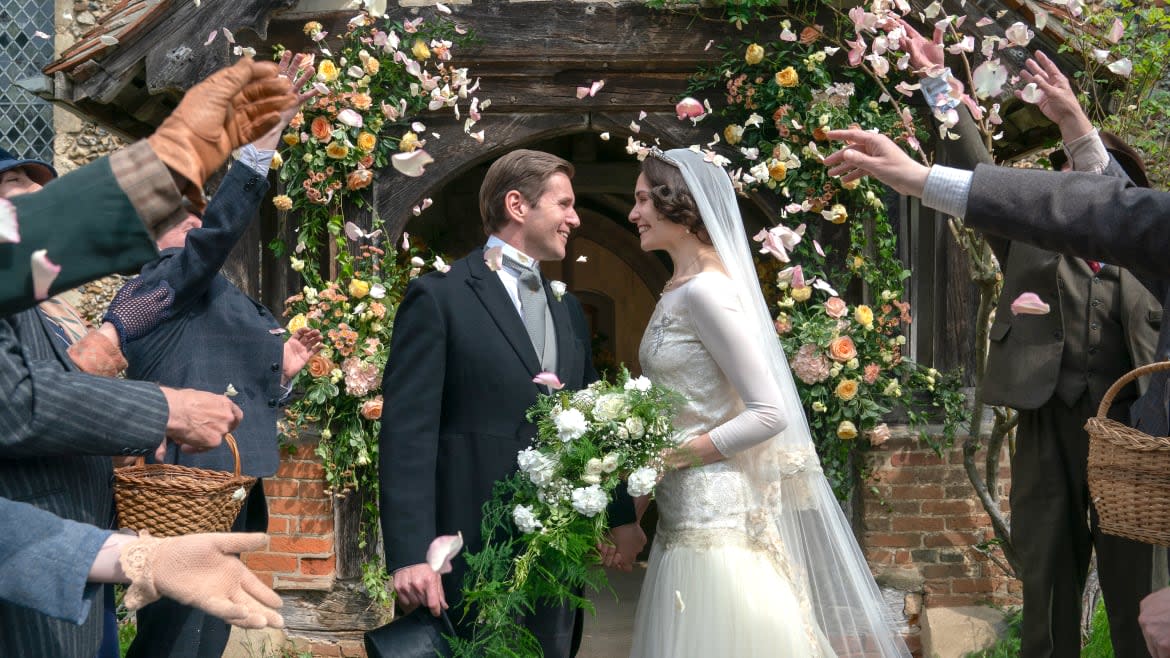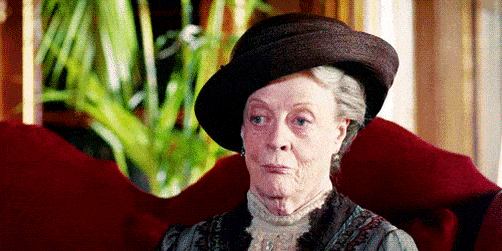‘Downton Abbey: A New Era’ Made Me Cry So Much

- Oops!Something went wrong.Please try again later.
- Oops!Something went wrong.Please try again later.
This is a preview of our pop culture newsletter The Daily Beast’s Obsessed, written by senior entertainment reporter Kevin Fallon. To receive the full newsletter in your inbox each week, sign up for it here.
I’m not a huge fan of how much I cried while watching the new Downton Abbey movie, Downton Abbey: A New Era.
It’s not something I love about myself. It’s not like I heard myself, around 30 minutes before the credits rolled, let out some sort of involuntary honk, like a baby goat bleating, and thought, “This is the kind of person I want to be.” I don’t think I was always the type who would weep straight through the last act of a Downton Abbey film. Guess someone else is in his new era, too.
When Downton Abbey, the TV series, premiered and became this outrageously popular international sensation, fingers flew over keyboards attempting think pieces that might explain the surprise appeal of this period soap opera.
Twelve years later, on the occasion of a second feature-length theatrical release (the first grossed nearly $200 million), its continued popularity is a little less mystifying, in that of course fans of a long-running TV series would be interested in an on-screen revisit years later. But the questions remain: Why did I find it so enjoyable? Why did I cry that much?
There’s an undeniable nostalgia element to Downton Abbey: A New Era that just feels good, an antidote to the poison of “being alive in 2022” that you can actually feel warm and refresh you as it makes its way through your veins. One might say the film uses this like a crutch, one it leans heavily on at its own risk.
Theo James Bares All About His Very Naked ‘Time Traveler’s Wife’ Performance
It’s true that it might seem like the first 25 minutes of the film is just a long tracking shot touring through the mansion and stopping for little drive-by hellos to the sprawling cast of roughly 400 characters. Oh hey, Mrs. Patmore! Isobel, I forgot how much I enjoy you! An Anna and Mr. Bates sighting, my heart is full! Truly, this could have been the entire movie and I would have had a lovely time.
The pleasure of something like Downton Abbey is how simple it is. Both with the series and the movies, you’ll be watching and realize part-way through, wait, that’s the plot? Like, it’s that basic. “We’re having dinner.” “Someone is coming to Downton.” “Sybill wore pants.” Then, of course, they’ll wallop you with something outrageous like a main character’s surprise death, and because you had been so sedated by delightfulness, you’re all the more ravaged for it.
The nice thing about such a simple pleasure is that it doesn’t really require too much investment. Yes, there are dozens of characters, each with their own mini plotlines that have unfolded over the decade. But you don’t really have to remember them. Adorable, spritely cook Daisy apparently has a husband. I had no recollection of that, but it didn’t matter. She nuzzled with a guy, I shrugged and thought, “Oh, she’s married,” and carried on. It’s low-investment satisfaction.
If I’m going to be truly honest, I forgot that the main family’s last name is not, in fact, Downton. The first time “the Crawley family” was mentioned I thought to myself, “Who’s that?” Did I feel stupid after? Sure. Did it matter? No! It’s Downton, where everything is extremely important and yet nothing is at all.
Written by Julian Fellowes, who created and wrote the series as well, the main drama—a word that has never been used more loosely than when in relation to Downton Abbey—is that the Dowager Countess has been left a villa in France by a man she hadn’t seen in many, many decades. She decides that she will leave the villa in her own will to her granddaughter, Sybill, whose father, Tom Branson (Allen Leech) and she are finally getting along.
There’s just a matter to be settled of who in the world this man is who left a villa to grandmama and why. So, a preposterous number of family members and staff travel to the South of France to figure it out. A Downton road trip boat trip movie!
Yes, the gripping narrative tension at the heart of a two-hour movie is, “What do we do about this surprise vacation property?” I was rapt.
The B plot of the film (if one laid out the various storylines with the constellation of characters in letters, we’d loop through the alphabet twice) is essentially Downton stealing the plot of Singin’ in the Rain.
A movie studio wants to shoot its next silent film at the house and, despite many a horrified reaction to something so radical and tasteless among the snootier generation (“A moving picture? At Downton!?”), Lady Mary (Michelle Dockery) makes the decision to accept because the large fee involved would allow for roof repairs and ensure a sturdy future for the estate. Having the property overrun by a film crew would be but a small price to pay—and, besides, at least her beloved papa, Hugh Bonneville’s Lord Grantham, would be in France rather than blowing a gasket over the interlopers.
But “mayhem” quickly ensues—on both sides of the Channel!
Over in France, the Crawleys start to piece together what could be a shocking family secret involving their lovingly judgmental granny. But don’t worry: It’s dealt with tenderly. You’ll smile warmly and coo a quiet, “Aww…”

And over at Downton Studios, things are sent into disarray when news comes in that no one wants silent movies anymore—it’s all about the talkies!—so production might have to shut down, especially since the leading lady has a harsh, squawking speaking voice that is basically unlistenable. But here, too, things are dealt with in the silly Downton way you can’t help but smile at. Lady Mary herself, won over by the charms of the film’s director (Hugh Dancy), steps in to provide the speaking voice of the doomed actress, who mimes the dialogue.
So what about all that crying?
You don’t have to be the world’s most elite cinephile to venture what character might, after all these years of teasing a specific event on the show and in the previous film, be at the center of the emotional climax. Even if we decided to be the world’s biggest jerk and directly say what happens, some might not consider it a spoiler because it’s that obvious and such a long time coming.
‘The Gilded Age’ Is Even More Fun Than ‘Downton Abbey’
That long history matters. The decade of investment in these characters and their relationship makes it so the tears are earned. It’s a beautiful sequence.
But the surprising thing about the film isn’t that. It’s how many highs there were to balance such profound sadness. There are gorgeous moments of victory for characters we’ve been long rooting for. Thomas Barrow (Robert James-Collier), you get to smile! Joseph Molesley (Kevin Doyle), you get to smile! And the keeper of my heart, Mrs. Patmore (Lesley Nicol), so do you, and I’m still floating because of it.
There’s obvious nostalgia. There’s the appeal of watching something that doesn’t test you, that just feels nice. Sure, this Downton Abbey sequel is less A New Era than the same one we’ve always known. But with the uncertainty and unpleasantness of the tumult in our current times, what a welcome relief—a joy, really—that is.
Get the Daily Beast's biggest scoops and scandals delivered right to your inbox. Sign up now.
Stay informed and gain unlimited access to the Daily Beast's unmatched reporting. Subscribe now.

